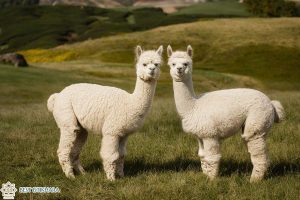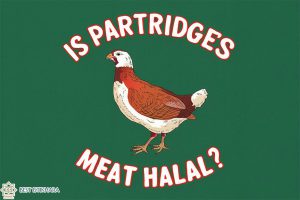Can Muslims Eat Elk Meat?

Elk meat, a lesser-known alternative to more common types of meat, has been gaining attention for its nutritional benefits and unique flavor. For Muslims, dietary choices are guided by the principles set forth in Islamic law, specifically what is deemed halal, meaning permissible. This raises an important question: Is elk meat halal, and can Muslims include it in their diet? In this article, we will explore the Islamic dietary laws concerning the consumption of elk, discuss the conditions under which elk meat can be considered halal, and provide insights into how this aligns with traditional culinary practices within Muslim communities. Click to get more information about halal vs haram topics discussed in today’s world.
Islamic Views on Elk Meat Consumption
In Islam, the consumption of meat is closely governed by halal dietary laws, which are derived from the Qur’an and the Hadith. For meat to be considered halal, it must come from an animal that is lawful to eat and must be slaughtered in a specific manner known as Zabihah. This method involves invoking the name of Allah, cutting the throat, windpipe, and veins of the animal with a sharp knife, and allowing the blood to drain completely, as blood is considered impure.
Elk meat, like other game meat, is permissible (halal) in Islam provided it is slaughtered according to these halal methods. However, if a Muslim comes across meat that has been hunted by a non-Muslim who does not adhere to these slaughtering practices, the meat would not be considered halal. Additionally, there are considerations regarding the treatment of the animal before slaughter—ensuring the animal has been treated humanely aligns with Islamic principles of compassion.
It is essential for Muslims to verify the halal status of elk meat, especially in non-Muslim countries where standard slaughtering practices might not meet Islamic requirements. This vigilance ensures that their dietary practices remain in harmony with their spiritual and ethical values.
Understanding Halal Certification for Elk Meat
Halal certification for elk meat signifies that the meat has been processed and prepared according to Islamic law. This certification is crucial for Muslims as it ensures the meat is permissible under Islamic dietary guidelines. The certification process involves several steps, starting from how the elk was raised to how it was slaughtered. The animal must be healthy at the time of slaughter, and the process must be performed by a Muslim, who recites the Tasmiyah and Takbeer (blessings) during the act.
A sharp knife must be used to make a swift, deep incision that cuts the front of the throat, the carotid artery, trachea, and jugular veins but leaves the spinal cord intact. This method ensures a quick and humane death for the animal, minimizing suffering. Moreover, all blood must be drained from the carcass, as consuming blood is forbidden in Islam.
Halal certification bodies also inspect the processing facilities to ensure that they meet hygiene and processing standards consistent with Islamic dietary laws. This includes avoiding cross-contamination with non-halal substances during storage, processing, or transport. For Muslims living in areas where halal-certified elk meat is not readily available, verifying the halal status through trusted certification can provide necessary assurance for dietary adherence.
Is Halal Elk Meat Healthy for Muslims?
Elk meat is renowned for its health benefits, making it an excellent choice for those adhering to a halal diet. Compared to conventional red meats, elk is leaner, containing fewer calories and less fat. This characteristic makes it a heart-healthier option, potentially reducing the risk of chronic diseases associated with higher fat diets. Elk meat is also rich in essential nutrients, including protein, iron, and vitamin B12, which are vital for muscle maintenance, oxygen transport, and energy production in the body.
From a halal perspective, the manner in which elk is slaughtered can also impact its health benefits. The halal slaughtering process is designed to ensure that all blood is drained from the carcass. Blood in meat can contribute to the proliferation of microorganisms, so its removal helps to improve the meat’s purity and longevity. Furthermore, halal certification typically involves rigorous standards for animal welfare and meat quality, which can translate to healthier, higher quality cuts.
For Muslims seeking nutritious dietary options, halal-certified elk meat offers a wholesome alternative that aligns with both spiritual and health principles.
Conclusion
In conclusion, elk meat can indeed be a permissible and healthy addition to a Muslim’s diet, provided it adheres to the strict guidelines set forth by Islamic dietary laws. The halal certification process ensures that the elk has been slaughtered in a manner that complies with these guidelines, promoting not only spiritual adherence but also emphasizing ethical treatment and humane practices. Furthermore, the nutritional benefits of elk meat, being lean and rich in essential nutrients, make it a favorable choice for those looking to maintain a balanced and health-conscious diet. Thus, as long as the necessary halal procedures are followed, Muslims can enjoy elk meat as a delicious and wholesome part of their dietary options.






